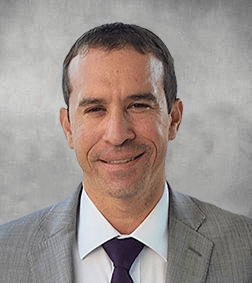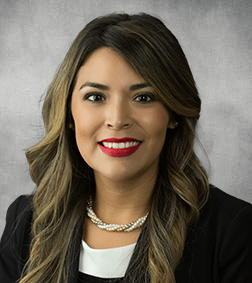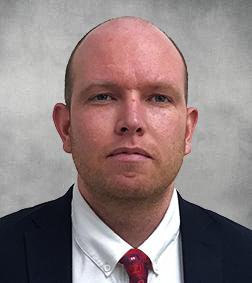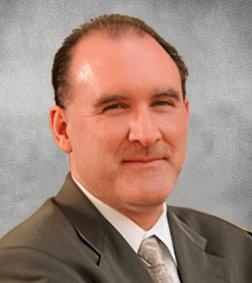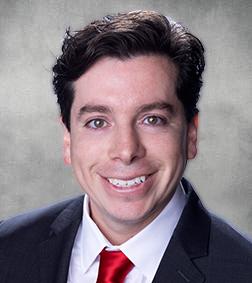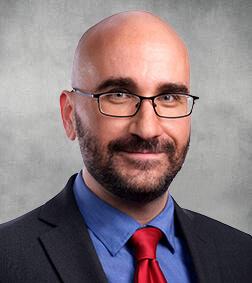Florida Public Corruption Lawyer
Backed by Decades of Collective Experience at Musca Law
Public corruption is a term that may refer to a number of criminal acts, involving a person in a public office. These cases are particularly sensitive in nature and should be handled with the utmost discretion. Only the highest quality legal representation will be effective in helping a defendant avoid a conviction as well as serious damage to his or her career and future opportunities. At Musca Law, our legal team is standing by to assist you with your public corruption charges. Our Florida criminal defense lawyers have decades of combined legal experience and work together as a team to provide only the best legal counsel. We draw upon our individual strengths to develop innovative defense strategies that work. We treat our clients with respect and their cases with the discretion they deserve. A public corruption lawyer at our firm can discuss your charges with you and can begin devising a plan to protect your interests, your reputation, and your future.
Types of Public Corruption
Public corruption is immediately scrutinized by the federal authorities because corruption at this level is considered to affect the judicial system, public safety, politics, and more. With the government against you, it is necessary to enlist an experienced attorney to clear your name and defend your rights. Your political career does not have to end due to an allegation of the following:
- Bribery
- Embezzlement
- Kickbacks
- Fraud
- Money Laundering
- Other Offenses
An experienced public corruption attorney can get started immediately in protecting your rights through every step of the criminal process – both inside and outside of the courtroom.
What Constitutes an Act of Bribery?
As defined in Florida Statute Title XLVI Chapter 838.015, bribery refers to a situation where a person knowingly and intentionally promises or gives (or knowingly and intentionally requests or agrees to) any benefit which has not been authorized by state law. As part of this act, the person in question will offer these benefits in an attempt to influence the performance of an act which this same person believes to be part of the wrongful execution of public services.
Now, here is a closer look at some definitions surrounding the legal concept of bribery, defined by Florida Statute Title XLVI Chapter 838.014:
- “Benefit” refers to any gain or advantage (or any object defined as an item of advantage), which may include an act of kindness or a charity.
- “Bid” refers to an invitation to negotiate on a settlement for a benefit.
- “Commodity” refers to goods, merchandise, or additional wares that are used in the process of production, employment, or additional activities.
- “Harm” refers to a loss or misfortunate inflicted on the victim.
Unlawfully Compensating or Rewarding Official Behavior
Florida State Title XLVI Chapter 838.016 dictates that any individual who knowingly and intentionally offers or gives a reward or service (or a public figure who knowingly and intentionally accepts a reward/service) unauthorized by law will be committing a violation of public law. Any individual who commits unlawful compensation or rewarding will be charged with a second-degree felony, punishable by a $10,000 fine and/or a prison sentence no longer than 30 years.
Threatening a Public Servant
As dictated by Florida Statute Title XLVI, Chapter 838.021, a willing and intentional attempt to harm or threaten public officials, their family members, and any other people held in close circles for one or both of the following purposes is a violation of public law:
- To influence or sway the performance of the public official
- To force the public servant to change his/her influence
Individuals who inflict harms the public servant for these reasons will be charged with a second-degree felony, punishable by a $10,000 fine and/or a prison sentence that does not exceed 30 years.
Individuals who threaten to harm to the public servant for these reasons will be charged with a third-degree felony, punishable by a $5,000 fine and/or a prison sentence that does not exceed 10 years.
What is Embezzlement?
According to the Cornell Law School, embezzlement is a crime that takes place when a person falsely takes personal property that he/or she was entrusted with (theft). Typically, this offense centers on the theft of money. Ultimately, “embezzlement” takes place regardless of whether the culprit keeps the stolen property or transfers it to a third party.
Here is a summary of laws outlined in Florida Statute Title XLVI Chapter 812.014, regarding the punishment for theft in the State of Florida. If a person knowingly and intentionally obtains or tries to obtain property that is owned by another person by one of the following means, that the culprit has hereby committed an act of embezzlement (or general theft):
- Depriving that individual of his/her legal rights to the property
- Use the property for his/her benefits and goals
Depending on the severity of the crime, damages inflicted, and the value of the property in question, the culprit can face charges ranging from a first-degree felony (punishable by a fine of $10,000 to $15,000 and/or life imprisonment) or a second-degree felony (punishable by a fine of $10,000 and/or prison time of no more than 30 years). For more details, please review Chapter 812.014.
Embezzling Property in Florida
Please review the following terms, in regards to a case of embezzlement in the State of Florida, as indicated in Florida Statute Title XLVI Chapter 812.081:
- “Trade secret” refers to an entirety or part of a formula, device, pattern, or system (or a combination of two or more of these items) owned by a business and designed to give that business an advantage.
- “Copy” refers to duplicate, copy, photograph, or complete replication of a part or entirety of an item, formula, device, pattern, or system.
As indicated by Chapter 812.081, any person who steals or embezzles a trade secret in an attempt to deprive the owner of this item or to use the item to his/her advantage will be charged with a third-degree felony, punishable by a fine of $5,000 and/or prison time that does not exceed 10 years.
Embezzlement across County Lines
As indicated by Florida Statute Title XLVII, Chapter 910.10, any individual who attempts to obtain property by means of larceny, embezzlement, or robbery of any sort will be put on trial in the county where this person maintains control over this property.
What Are Kickbacks?
Based on the definition provided by the Cornell Law School, kickbacks constitute the misuse of funds utilized by an influential or powerful person who uses these resources to make another person, an organization, or an entire company wealthier. By means of corrupt bidding, this individual can provide this reward to the company in question, even though this group did not make the lowest offer on the item in question.
Exchanging and Receiving Kickbacks
As dictated in Florida Statute Title XXXII, Chapter 456.054, health care providers or other groups that provide health care cannot offer, pay, or solicit kickbacks through direct or indirect means in cash or additional forms for the purpose of soliciting patients under their care. Under the same Statute, no person or group can pay for or receive (through direct or indirect means) any form of payment or take part in a split-form agreement to reference patients to a laboratory.
Anyone who takes part in one or both of these crimes has committed the crime of patient brokering and will be punished in one of the following ways, depending on the severity of the crime:
- Any officers, partners, agents, attorneys or representatives of firms, joint ventures, syndicates, or businesses who exchanges kickbacks will be charged with a third-degree felony, punishable by a fine of $5,000 and/or prison time that does not exceed 10 years. Culprits will be ordered to pay a $50,000 fine.
- Any officers, partners, agents, attorneys or representatives of firms, joint ventures, syndicates, or business who exchange kickbacks in which the transaction includes no less than 10 patients and no more than 20 patients will be charged with a second-degree felony, punishable by a fine of $10,000 and/or prison time of no more than 30 years. Culprits will be ordered to pay a $100,000 fine.
- Any individual also falling into these categories of representatives of firms, joint ventures, syndicates, or business who exchange kickbacks in which the transaction included 20 or more patients will be charged with a second-degree felony, punishable by a fine of $10,000 and/or prison time of no more than 30 years. Culprits will be ordered to pay a $500,000 fine.
For more information on patient brokering, check out Florida Statute Title XLVI Chapter 817.505.
Receiving Bribes or Kickbacks in Nursing Home Facilities
According to Florida Statute Title XXIX Chapter 400.17, any people or organizations who provide additional services to members of nursing homes in exchange for kickbacks will be charged with a first-degree misdemeanor, punishable by a $1,000 fine and/or imprisonment for no longer than one year.
Committing an Act of Fraud
As outlined in the Cornell Law School’s references, fraud is a crime that takes place when a person deliberately tries to deceive a person (or multiple people) with the intention of inflicting damage. Bankruptcy fraud and credit card fraud are just two examples of this offense.
As outlined in Florida Statute Title XXXVII Chapter 626.8797 (and the attached proof of loss statement), any individual who presents proof of loss and/or damages in an attempt to deceive someone will be charged with a third-degree felony, punishable by a fine of $5,000 and/or prison time that does not exceed 10 years.
Committing an Act of Fraud on the Grounds of Cheating
As indicated in Florida Statute Title XLVI Chapter 817.29, any individual who has committed an act of gross fraud or has cheated as part of the common law will be charged with a third-degree felony, punishable by a fine of $5,000 and/or prison time that does not exceed 10 years.
Committing an Act of Fraud That Includes a Security Interest
According to Florida Statute Title XLVI Chapter 817.562, an individual has committed an act of fraud including a security agreement (including receivable accounts), in which security interest has been paid to protect a portion of monetary funds owed to a specific individual, if he/she:
- Disposes of the secured property and does not account these losses to the secured individual or groups.
- Disposes of the secured property in complete violation of the security agreement.
Under the same Statute, individuals who break this portion of Florida Law will be punished in one of two ways, depending on the value of the property and the severity of the crime:
- If the property is valued at $300 or greater, the culprit will be charged with a third-degree felony, punishable by a fine of $5,000 and prison time that does not exceed five years.
- If the property is valued at less than $300, the culprit will be charged with a first-degree misdemeanor, punishable by a fine of $1,000 and prison time that does not exceed one year.
Determination of a Valid Case of Public Corruption in the State of Florida
For more information concerning the development of valid public corruption cases (including any charges of bribery, fraud, kickbacks, embezzlement, fraud, theft, and related offenses), be sure to read over the following juror instructions:
- Criminal Jury Instructions Chapter 14: Theft
- Criminal Jury Instructions Chapter 19: Bribery
- Criminal Jury Instructions Chapter 20: Fraud
Fight for Your Reputation with an Experienced Public Corruption Lawyer in Florida!
A Florida public corruption attorney at our firm can stand by your side from the initial investigation onward. We will use our legal experience to work toward a resolution that does not result in criminal charges and therefore has the least impact on your career and reputation. You can count on our strength and persistence as we protect all that you hold dear and work to prove the allegations brought against you are false. Our reliable team of attorneys represents clients throughout all of Florida in both state and federal court.








